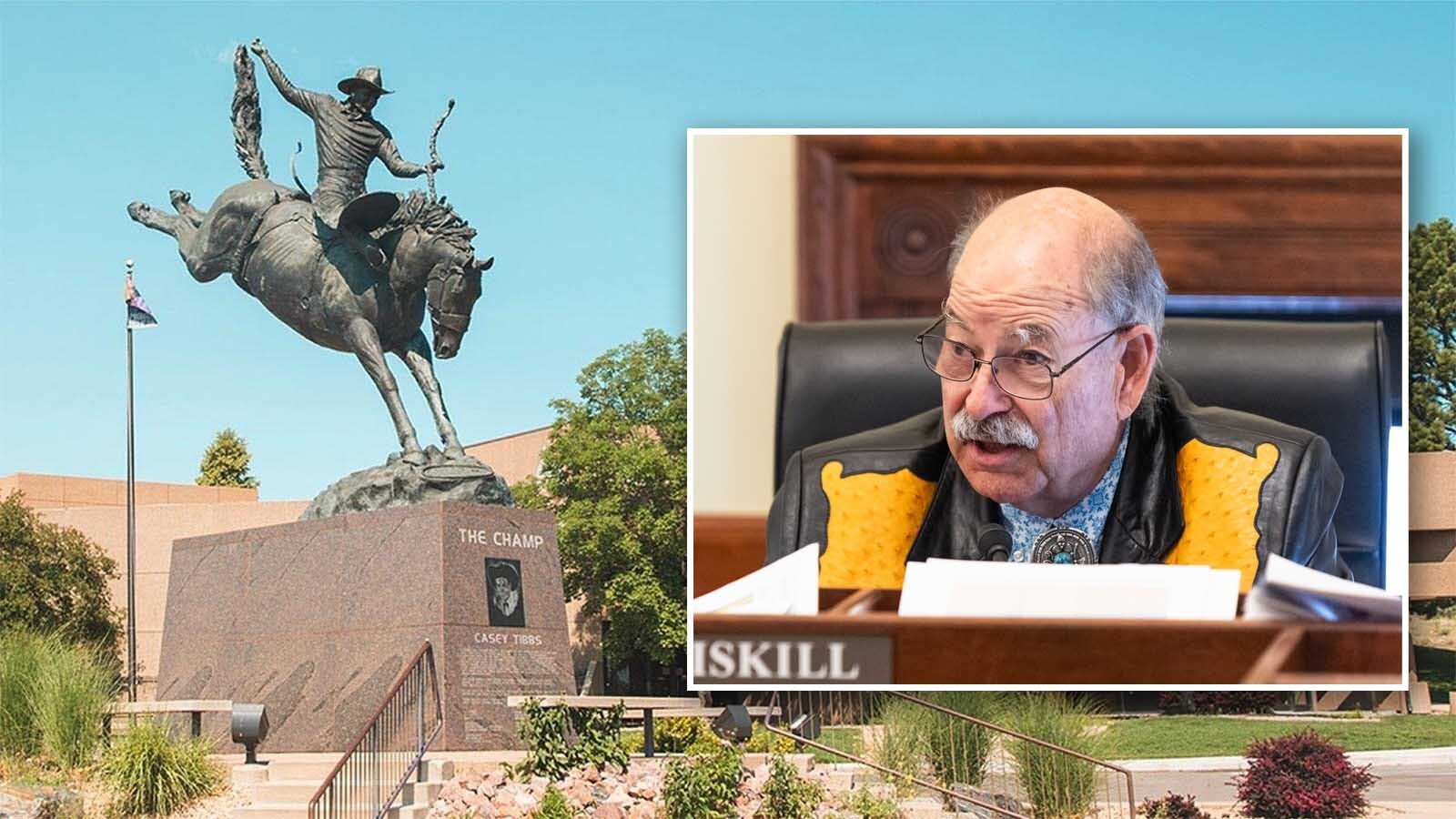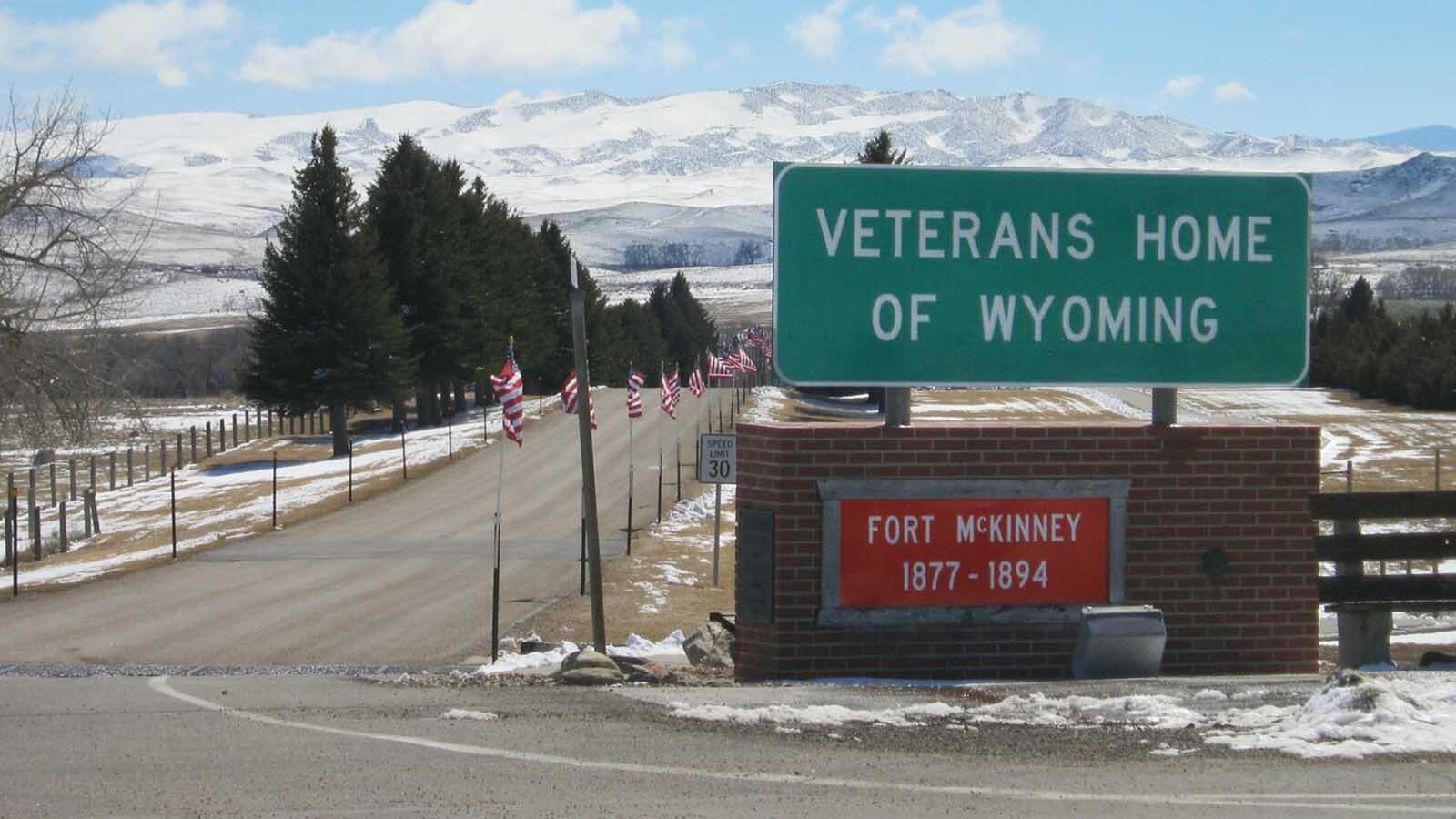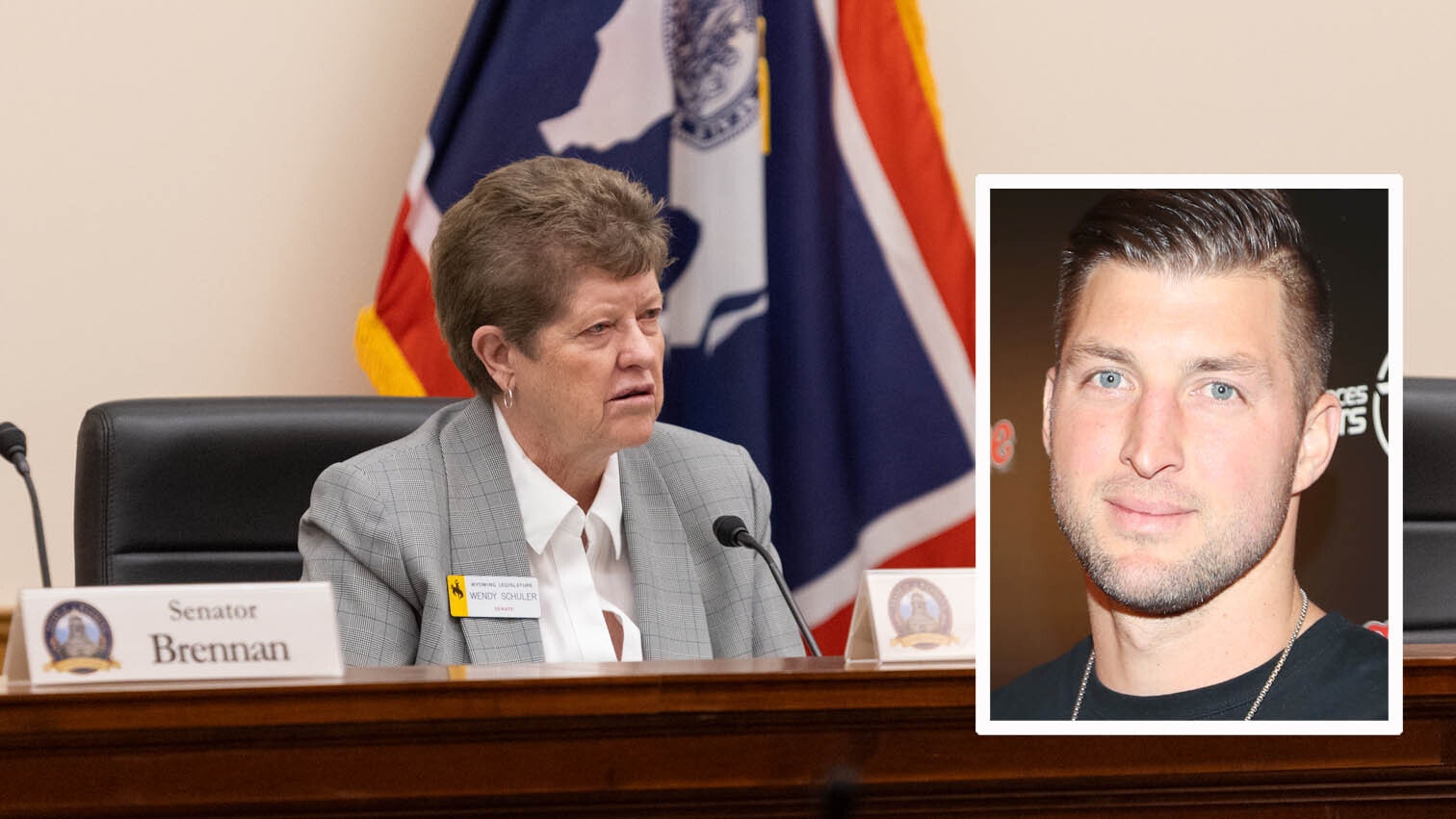WASHINGTON, D.C. — Reimbursement for livestock killed by predators. Less estate tax burden for ranchers and farmers as lands are passed on to the next generation. More logging, mandatory.
Reduced royalty payments from coal, oil and gas companies for projects on public lands.
These provisions are just a few of the “Wyoming wins” in the massive budget bill that Congress finished Thursday, said U.S. Sen. Cynthia Lummis.
President Donald Trump signed the bill Friday at a White House ceremony amidst Fourth of July festivities in the nation’s capital.
Lummis’s office has issued several statements on the new law, citing a number of “wins” for Wyoming. Most of the provisions fall into two broad categories — energy and agriculture, including related tax provisions.
But that's not all. The Wyoming Republican also cited language eliminating a transfer tax on some guns as well as gun suppressors (aka silencers).
Lummis shared the credit for the firearms language with Senate Finance Committee Chairman Mike Crapo, R-Idaho. She touts the language for “lifting silencer and short-barrel rifle taxes.”
She said it removes “the Depression-era $200 tax on suppressors, as well as short-barreled rifles and shotguns.”
This provision was one of many challenged on parliamentary grounds by Senate Democrats. But sure enough, there it is on Page 454 of the bill Trump signed.
“This will allow more law-abiding Wyoming gun owners to protect their hearing while exercising their Constitutional rights,” Lummis said in a statement. “I will never stop fighting to cut taxes and ensure all Americans can fully enjoy their Second Amendment rights.”
Agriculture, Natural Resources
What Trump signed is the Senate-amended version of the House’s One Big Beautiful Bill Act. Senate Democrats stripped out the title so it’s now just “The Act,” but that hasn’t stopped Republicans from continuing to refer to it by its original name.
The multitrillion-dollar tax and spending package, which survived a handful of GOP defections and total opposition by Democrats, concerns income taxes, military spending, immigration, Medicaid and much more.
Lummis has spoken on those, but her office has gone further with detailed statements on agriculture and the natural resources extraction industries.
The law contains extensive measures to promote the coal, oil, gas and timber industries. This language primarily involves royalty payments, tax policy, required lease sales and environmental law rollbacks.
The law seeks to benefit ranchers and farmers through access to programs, tax treatment and more. The tax provisions pertain to the estate tax and as well as normal business operations, such as the expensing of equipment.
The following is not a comprehensive retelling of Lummis’s statements, but covers the bulk of it.

Oil & Gas
For oil and gas, the law:
• Restores a previous royalty rate of 12.5%, “reversing punitive increases,” Lummis said.
• Mandates the Bureau of Land Management hold quarterly lease sales in nine western states, including Wyoming, for 10 years.
• Increases drilling permits from three to four years, providing greater operational certainty.
• Reinstates noncompetitive leasing to encourage exploration, and in Lummis’s words “streamlines surface commingling applications.”
• Promotes oil drilling in Gulf of America states and Alaska, among other industry priorities.
Coal
For coal, the law:
• Cuts federal coal royalty rates from 12.5% to 7% for new and existing leases through 2034.
• Requires the Interior secretary to lease at least 4 million additional acres of known recoverable coal reserves within 90 days of enactment.
• Eliminates what Lummis called “regulatory barriers that have prevented coal development on federal lands.”
Timber
For timber, Lummis noted the law requires the U.S. Forest Service to enter into 40 long-term logging contracts between 2025-2034.
Her statements do not give acreage numbers, but the text of the law itself says that in each year for 10 years, 250 million more board feet must be logged than the year before on USFS land.
The law also sets forth requirements for logging contracts to be issued on BLM land.
Livestock, Estate Tax, Operating Taxes
For farmers and ranchers, the law:
• Provides reimbursement money for livestock losses due to attacks from bears, wolves and eagles.
• Expands producer access to the livestock forage disaster assistance program and establishes supplemental agricultural trade promotion initiatives.
• Expands eligibility and payments for grazing losses on federal lands due to wildfires and drought.
• Strengthens programs for livestock disease preparedness, lab testing and vaccine stockpiles.
• Extends and enhances estate tax exemptions with higher thresholds and permanent provisions to facilitate intergenerational transfer of family ranches.
• Allows full expensing of certain business property, enabling ranchers to immediately deduct equipment and infrastructure investments.
• Provides special depreciation allowances for qualified production property, offering larger and accelerated deductions for ranch growth and resilience investments.
Other Language
According to Lummis’s statements, there is a provision to require that 25% of revenue generated from renewable energy sources to go to state and local governments.
Lummis also cited a $1 billion investment for Bureau of Reclamation projects. She said the money is dedicated for the restoration and expansion of surface water storage facilities.
Wyoming has seven irrigation districts and water storage capacity, she said.
Lummis serves on the Senate Environment and Public Works Committee, which drafted much of the language she cited in her “Wyoming wins” announcements.
She also chairs the Senate Western Caucus, an informal yet influential group stacked with powerful senators including Majority Whip John Barrasso of Wyoming and Majority Leader John Thune of South Dakota.
“As chair of the Senate Western Caucus, I’m proud that our members’ relentless efforts secured critical wins that will further unleash American energy, strengthen rural economies, simplify coal leases, foster healthy forests, enhance wildfire prevention, increase on- and offshore oil and gas production, and bring practical approaches back to federal land oversight,” Lummis said.
U.S. Rep. Harriet Hageman, R-Wyoming, serves on the House Natural Resources Committee. She helped draft language for the House version of the bill in line with what Lummis cited.
Trump Shout-Out To Barrasso
Trump, moments before signing the bill, spoke from a White House balcony to a large crowd outside the building.
He called the bill "the greatest victory yet" of his second term.
Many lawmakers were on hand, though Barrasso and Lummis were in Wyoming for the Fourth of July.
Trump gave a shout-out to Barrasso and several other members of Congress, mostly leadership members like Barrasso and committee chairmen.
Sean Barry can be reached at sean@cowboystatedaily.com.





